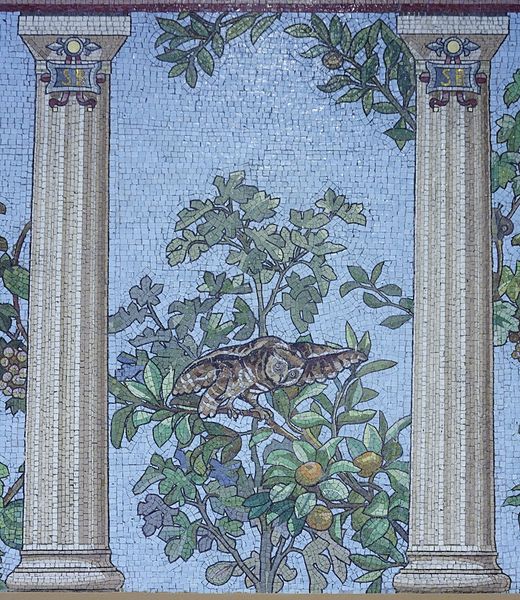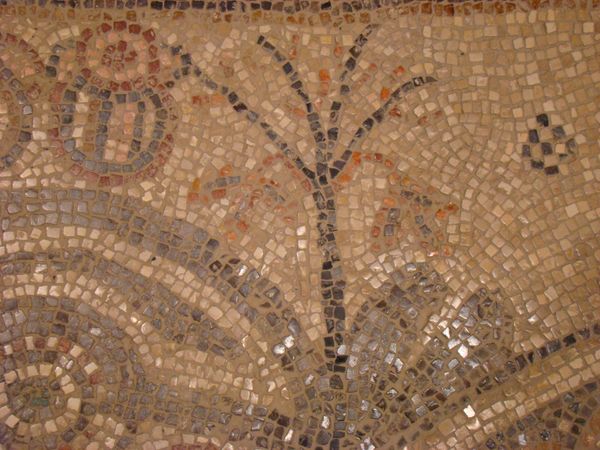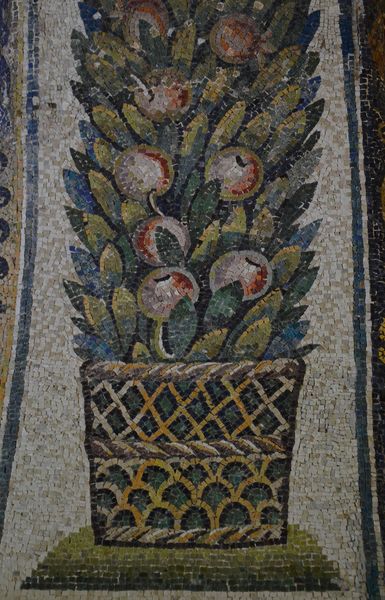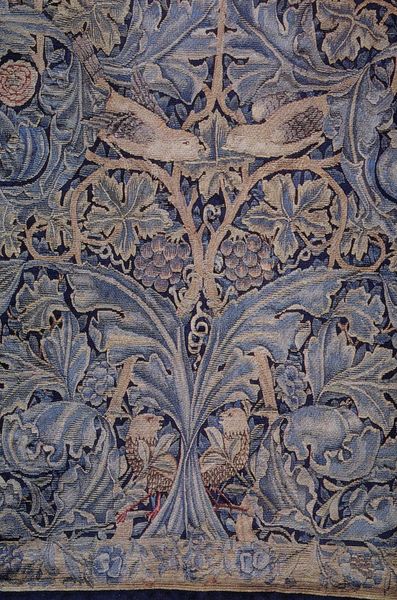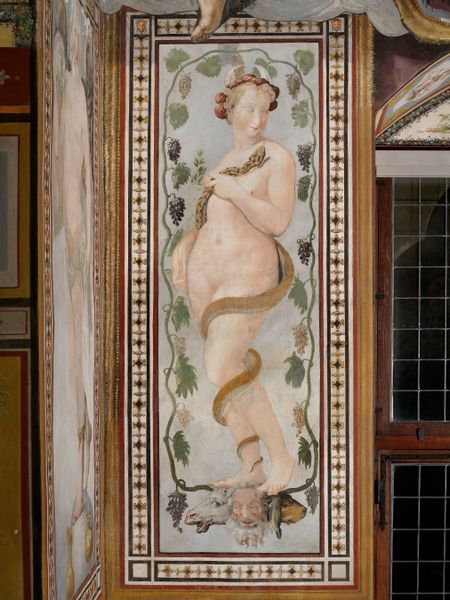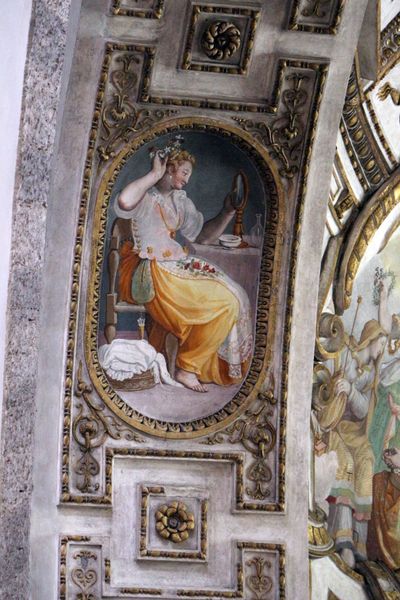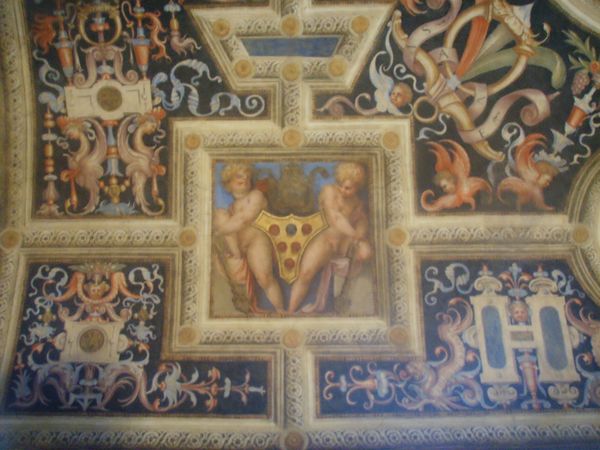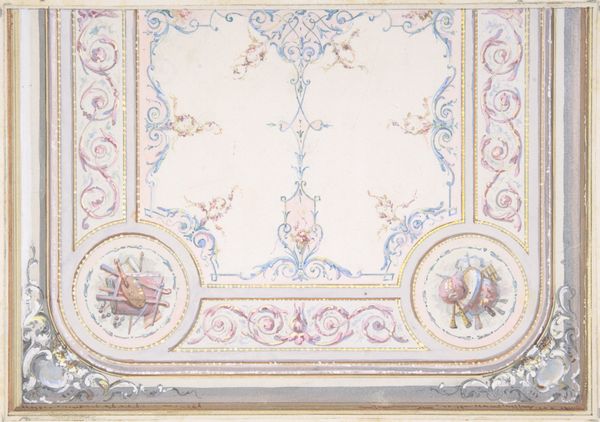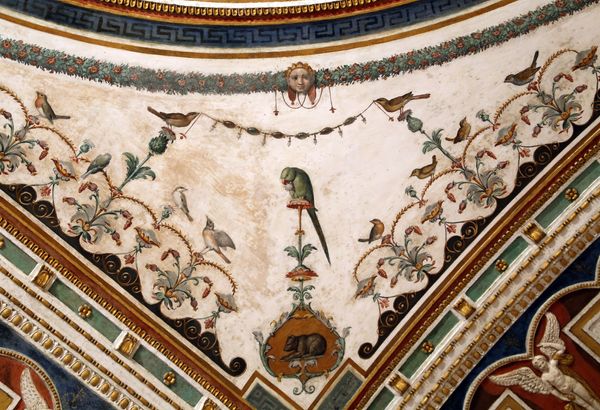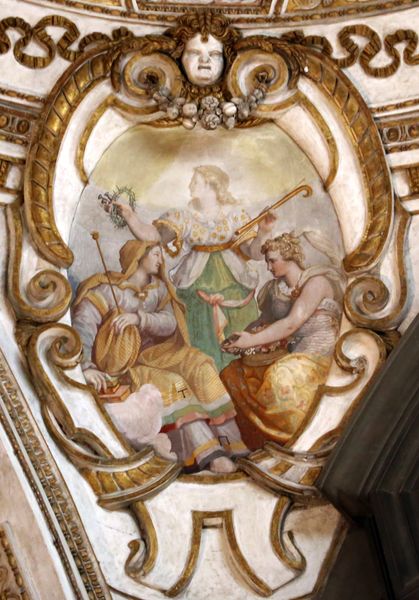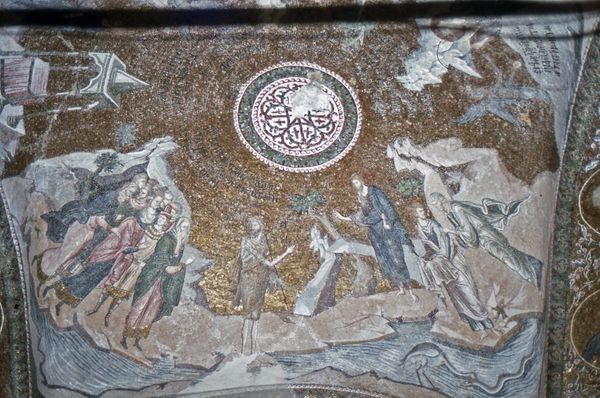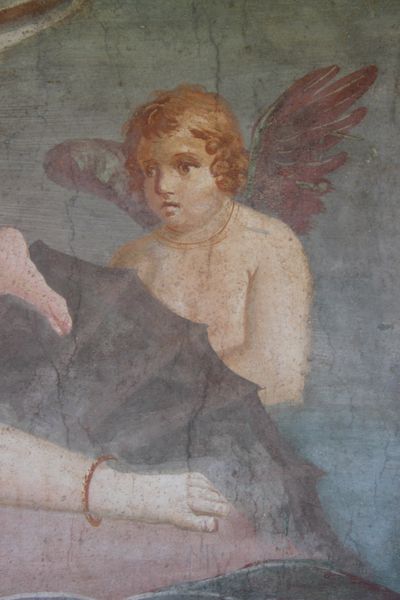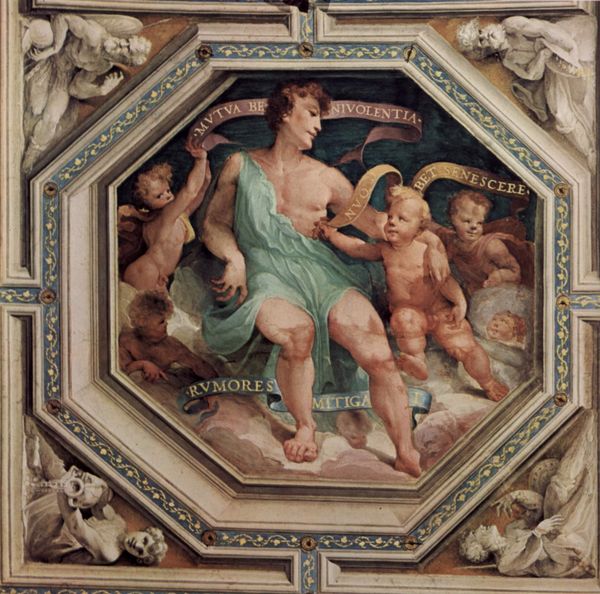
mosaic, architecture
#
mosaic
#
byzantine-art
#
landscape
#
architectural photography
#
text
#
traditional architecture
#
geometric
#
interior architecture photography
#
decorative-art
#
architecture photography
#
architecture
#
architectural design photography
Copyright: Public domain
Curator: This mosaic is part of the dining hall in the Sainte-Barbe library, Paris. It’s attributed to Giandomenico Facchina, and it's a remarkable example of the architectural integration of decorative art. Editor: It strikes me as incredibly serene, almost dreamlike. The soft blues and greens, the mosaic texture, give it an ethereal quality. Curator: The context is key. Libraries, historically, have been sites of intense intellectual exchange but also exclusivity. Consider the mosaic within that framework – how did decorative art and imagery help to democratize, or perhaps aestheticize, what could be seen as very constrained institutional spaces? Editor: That’s a great point. Visually, there’s this interesting tension between the architectural order – those symmetrical columns – and the organic, almost wild depiction of the plum tree and bird. Curator: Absolutely. The classical columns hint at power and tradition, yet they frame this pastoral scene. It softens the authority traditionally associated with such institutions, perhaps even subverting it a bit. Birds, for example, are often interpreted as symbols of freedom. In what ways are we caged by the institutions, even the learning institutions that we attend? Editor: And the medium itself, mosaic, suggests fragmentation, piecing together a whole. Does that comment on the fragmented nature of knowledge itself, and the work of scholarship being that of bringing them together? Curator: That's compelling. Facchina may be saying something profound about the relationship between knowledge, nature, and institutional power dynamics. The Sainte-Barbe library mosaic prompts us to think about these layers, their constant interactions in defining culture. Editor: Yes, stepping back and seeing how this image functions politically allows viewers to engage critically with ideas about libraries. It pushes past just its pleasing qualities. Curator: It really is fascinating how such a seemingly simple scene holds so much historical and theoretical weight. Editor: Precisely. It makes me reconsider my initial, purely aesthetic reaction.
Comments
No comments
Be the first to comment and join the conversation on the ultimate creative platform.
